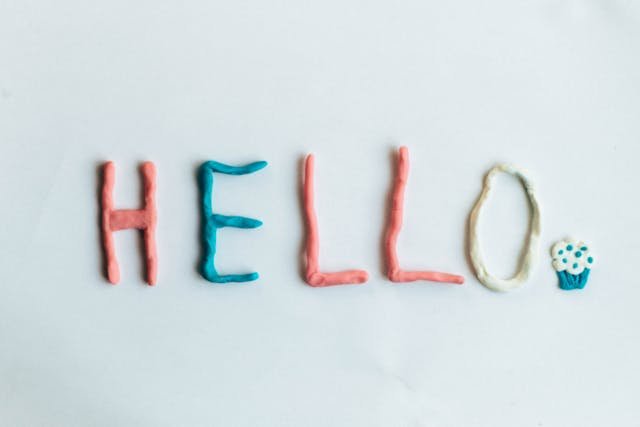Language is more than just words. It’s the gateway to culture, understanding, and connection. For kids, learning a new language like Mandarin is not only fun but also a cognitive boost that helps them understand the world in a richer way. Mandarin Chinese, spoken by over a billion people, is the most widely spoken language in the world, and its importance is growing each year. So why not give your child a head start by introducing them to this fascinating language?
The journey of learning Mandarin can begin with something as simple as greetings. Greeting someone in their native language is often the first step in making a connection, and teaching kids a few basic Mandarin greetings is a fantastic way to spark their interest in the language. These phrases are simple, yet they hold a magical quality, opening doors to new friendships and adventures in language learning.
In this article, we will dive into some essential Mandarin greetings that are perfect for kids, along with fun ways to practice and cultural insights to deepen their understanding. Whether your child is a complete beginner or just curious about learning a new language, these greetings are a great way to start their Mandarin journey.
For those in Oslo, you can also register your child for flexible Mandarin classes tailored for children at LC Chinese School, where experienced instructors will guide them through the process of learning in a fun and interactive environment.
Table of Contents
ToggleWhy Mandarin is a Great Language for Kids
Mandarin might seem intimidating at first, especially for those who are unfamiliar with tonal languages. In Mandarin, the meaning of a word can change depending on the tone used, making it a bit tricky for beginners. However, children are remarkably adept at picking up new sounds and languages, especially when they start young. Their brains are like sponges, soaking up new information quickly and efficiently.
Learning Mandarin early on offers numerous benefits for children. It enhances their listening skills, boosts cognitive development, and improves their problem-solving abilities. Moreover, with China’s growing influence in global economics, politics, and technology, knowing Mandarin could open up a world of opportunities in the future.
But beyond the practical benefits, learning Mandarin is an exciting adventure. The language is deeply rooted in Chinese history and culture, and understanding it allows children to gain insights into one of the world’s oldest and richest civilizations. Mandarin uses characters instead of an alphabet, which might seem complicated, but for kids, learning to recognize and write these characters can feel like decoding a secret code—fun and challenging at the same time!
The Role of Greetings in Language Learning
Greetings are often the first words we learn in a new language because they’re so essential in everyday life. In Mandarin, greetings go beyond just saying “hello” or “goodbye”; they also reflect cultural values such as respect, politeness, and care for others. By learning Mandarin greetings, children not only acquire new words but also begin to understand the importance of etiquette and kindness in Chinese culture.
In this guide, we’ll explore some of the most common Mandarin greetings, their meanings, and how to pronounce them. These phrases are perfect for kids because they’re simple, frequently used, and a great starting point for building confidence in speaking the language.
1. Hello: 你好 (Nǐ hǎo)
- Meaning: Hello
- Usage: This is the most common way to greet someone in Mandarin and can be used in almost any situation.
Teaching your child to say “你好 (Nǐ hǎo)” is a great introduction to Mandarin. It’s short, easy to pronounce, and versatile. Encourage your child to use it whenever they meet someone new, whether it’s a friend, a teacher, or even a family member at home.
Cultural Insight:
In Chinese culture, saying “你好 (Nǐ hǎo)” is not just a greeting but also an acknowledgment of the other person’s presence. It shows respect and friendliness, which are core values in Chinese social interactions. This phrase helps children understand the importance of showing politeness and recognition in everyday interactions.
2. Good Morning: 早上好 (Zǎo shàng hǎo)
- Meaning: Good morning
- Usage: Use this phrase to greet someone in the morning.
Mornings are a great time to start practicing Mandarin with your child. Waking up and saying “早上好 (Zǎo shàng hǎo)” is not only a cheerful way to start the day but also an opportunity to reinforce language learning in a fun and natural setting.
Encourage your child to say this when they wake up or as they head off to school. They’ll quickly get into the habit of using Mandarin from the moment they get out of bed!
Cultural Insight:
Morning greetings in Mandarin are more formal than their English counterparts. In Chinese culture, greeting someone in the morning is seen as a sign of respect and care, showing that you are thinking of their well-being at the start of the day.
3. Good Afternoon: 下午好 (Xià wǔ hǎo)
- Meaning: Good afternoon
- Usage: A friendly greeting for the afternoon hours.
As your child progresses in their Mandarin learning, it’s important to introduce greetings for different times of the day. “下午好 (Xià wǔ hǎo)” can be used in the early to late afternoon and helps kids understand how greetings change with the time of day.
Cultural Insight:
In Chinese, being specific with time-related greetings reflects a sense of order and respect for the daily routine. By teaching your child to use these greetings, you’re helping them grasp the rhythm of the day in a new language.
4. Good Evening: 晚上好 (Wǎn shàng hǎo)
- Meaning: Good evening
- Usage: A polite way to greet someone in the evening.
As the day winds down, saying “晚上好 (Wǎn shàng hǎo)” is a lovely way to continue Mandarin practice while setting the tone for the evening. Whether it’s used at dinnertime or when your child is saying goodnight to family members, this greeting brings a sense of completion to the day.
Cultural Insight:
Evening greetings in Mandarin are often used when meeting someone after a long day or before saying goodbye for the night. It’s a gentle, respectful way of acknowledging the transition from day to evening, and it offers children a cultural understanding of how time and greetings are connected.
5. Goodbye: 再见 (Zài jiàn)
- Meaning: Goodbye
- Usage: The standard way to say farewell in Mandarin.
Saying goodbye is just as important as saying hello, and “再见 (Zài jiàn)” is an easy word for kids to learn. Encourage your child to use it when they leave school, say goodbye to friends, or finish a conversation.
Cultural Insight:
“再见 (Zài jiàn)” literally means “see you again,” which reflects the hope for future encounters. In Chinese culture, farewells are often more than just a goodbye; they imply a desire to meet again, whether soon or sometime in the future.
6. How Are You?: 你好吗? (Nǐ hǎo ma?)
- Meaning: How are you?
- Usage: A polite way to ask someone how they are doing.
Adding “你好吗? (Nǐ hǎo ma?)” to your child’s vocabulary opens up simple conversational exchanges. It’s a wonderful way for children to interact more deeply with others and practice the rhythm of Mandarin conversation.
Cultural Insight:
In China, asking someone how they are is not just small talk. It shows care and concern for the person’s well-being. Teaching your child this phrase helps them understand the value of checking in on others and fostering positive relationships.
7. I’m Fine: 我很好 (Wǒ hěn hǎo)
- Meaning: I’m fine
- Usage: A response to “How are you?”
This phrase is a great way for your child to respond when someone asks how they are. It builds conversational flow and gives them confidence in replying to questions in Mandarin.
8. Thank You: 谢谢 (Xiè xiè)
- Meaning: Thank you
- Usage: Expressing gratitude.
Gratitude is a fundamental aspect of Chinese culture, and learning to say “谢谢 (Xiè xiè)” is one of the first steps in teaching your child manners in Mandarin. Encourage them to say it whenever someone does something nice for them.
Cultural Insight:
In Chinese culture, showing gratitude is not just a polite thing to do—it’s a way of acknowledging the effort and kindness of others. By teaching your child to say “谢谢 (Xiè xiè),” you’re also teaching them to appreciate the people around them.
9. You’re Welcome: 不客气 (Bù kè qì)
- Meaning: You’re welcome
- Usage: A polite response to “谢谢 (Xiè xiè).”
Responding to gratitude is just as important as expressing it, and “不客气 (Bù kè qì)” is a simple way for kids to say “you’re welcome.”
Cultural Insight:
The phrase “不客气 (Bù kè qì)” literally means “no need to be polite.” It reflects a humble attitude, common in Chinese culture, where people often downplay their own actions to emphasize the importance of the relationship rather than the deed.
10. See You Tomorrow: 明天见 (Míng tiān jiàn)
- Meaning: See you tomorrow
- Usage: A cheerful way to say goodbye if you’ll see the person the next day.
This phrase is a fun way for children to say goodbye to friends or teachers, especially when they’re excited about meeting them again the next day.
Fun Ways to Practice Mandarin Greetings
Now that we’ve gone through some essential greetings, let’s look at how to make learning them fun for your child. Here are some engaging activities to reinforce their understanding of these phrases:
1. Greeting Flashcards
Create flashcards with the Mandarin greetings on one side and pictures or translations on the other. Go through these cards with your child regularly, turning it into a game by seeing how many they can remember. This visual tool helps reinforce vocabulary and pronunciation.
2. Role-Playing
Set up scenarios where your child can use Mandarin greetings. You can pretend to be different people (a teacher, a friend, or a family member) and have them greet you appropriately based on the situation. Role-playing helps children understand the context in which each greeting is used.
3. Daily Practice
Integrating Mandarin greetings into your daily routine is one of the best ways to reinforce learning. Encourage your child to greet you and other family members in Mandarin each day. With time, these phrases will become second nature.
4. Bingo
Turn learning into a game by creating a bingo board with different Mandarin greetings. As you call out the phrases, your child can mark them off on their board. It’s a fun and competitive way to test their knowledge.
5. Songs
There are many Mandarin greeting songs available online, especially on platforms like YouTube. These songs are a great way to make learning memorable through music and rhythm. You can find ones specifically tailored for kids to sing along with and practice pronunciation.
Understanding Chinese Culture Through Greetings
Learning Mandarin greetings gives your child more than just the ability to communicate—they also gain insight into the deeper cultural significance of these phrases. In Chinese culture, greetings are a way of showing respect and building relationships. For instance, greetings like “你好吗? (Nǐ hǎo ma?)” are more than just words—they reflect genuine concern for someone’s well-being.
By teaching your child Mandarin greetings, you’re also introducing them to the importance of respect, politeness, and community in Chinese culture. These values are central to social interactions in China, and understanding them will give your child a richer, more meaningful connection to the language.
Start Your Child’s Mandarin Journey with LC Chinese School
Mandarin greetings are a great first step in learning the language, but there’s so much more to explore! At LC Chinese School in Oslo, we offer flexible and engaging Mandarin classes for kids. Our courses are designed to be fun, interactive, and tailored to your child’s unique learning style. Whether they’re just starting out or looking to improve their skills, our experienced instructors will guide them through their language-learning journey.
Our flexible class schedules ensure that learning Mandarin can fit into even the busiest of family routines. With small class sizes and personalized attention, your child will receive the support they need to succeed.
Conclusion: Unlock a World of Opportunities
Mandarin greetings are just the beginning. Learning Mandarin opens the door to new friendships, cultural understanding, and future opportunities for your child. By starting with these simple greetings, your child will build confidence and curiosity in the language.
With consistent practice and support, they’ll soon be able to greet the world in Mandarin. Sign up for Mandarin classes at LC Chinese School today, and let’s embark on this exciting journey together!







